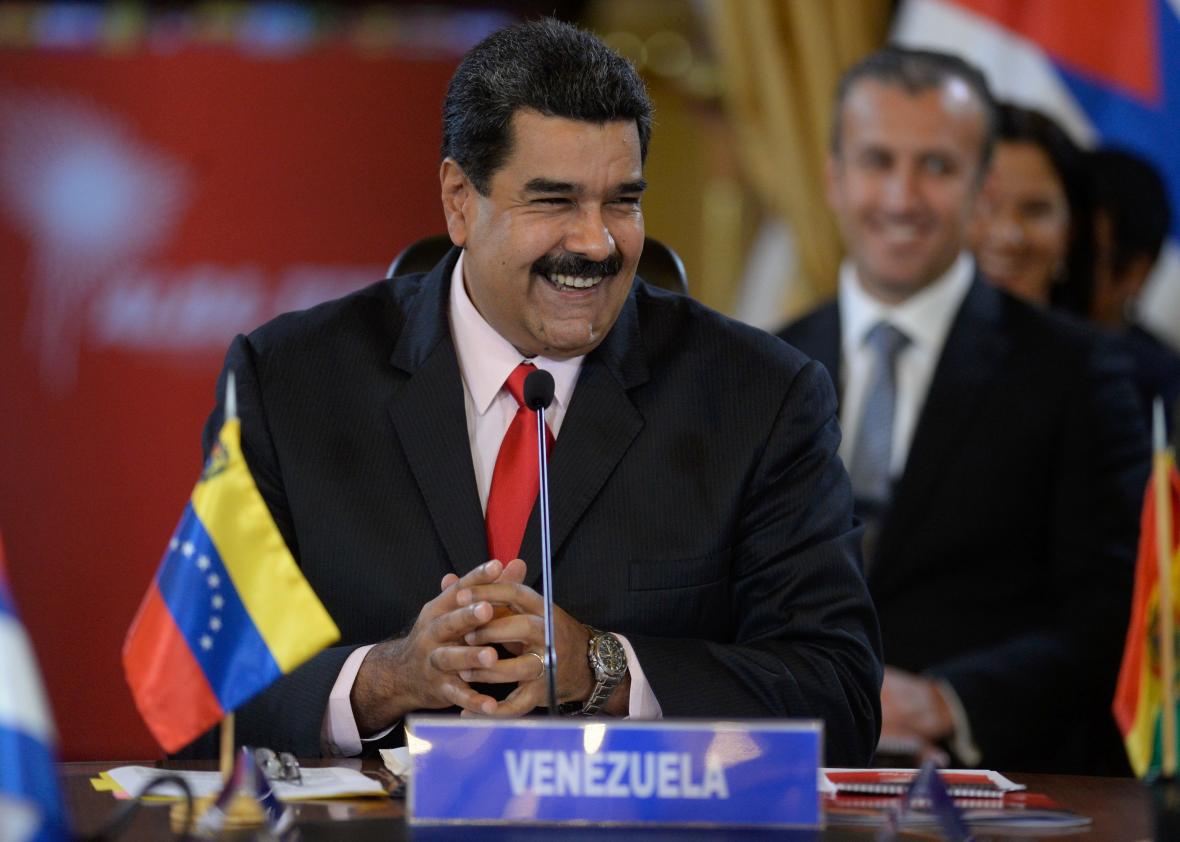President Donald Trump shocked the world Friday when he seemed to offhandedly escalate the U.S. response to Venezuela’s political crisis by threatening military intervention. Trump made the surprising comments when he was asked by a reported what options were available for the United States to deal with Venezuela. “We have many options for Venezuela and by the way, I’m not going to rule out a military option,” Trump said at his golf club in Bedminster, New Jersey.
Lest you think the commander in chief somehow misspoke, he repeated the same message again seconds later. “This is our neighbor,” Trump added. “You know, we are all over the world and we have troops all over the world in places that are very, very far away. Venezuela is not very far away and the people are suffering, and they are dying. We have many options for Venezuela, including a possible military option if necessary.”
Venezuela’s Defense Minister Vladimir Padrino immediately criticized Trump for his statement, calling it “an act of supreme extremism” and “an act of madness.” The president of Venezuela’s new Constituent Assembly, the all-powerful body voted into power in widely denounced elections to rewrite the country’s constitution, took to Twitter to say that “insults and aggressions” against President Nicolás Maduro would be rejected by the “anti-imperialist people of Venezuela.” The Venezuelan communications minister, Ernesto Villegas, said Trump’s words amounted to “an unprecedented threat to national sovereignty.”
Throughout his power grab that has accompanied Venezuela’s descent into chaos, Maduro has long warned the United States was planning to invade the country. Trump’s words seemed to play straight into his narrative, recalling a time when Washington saw Latin America as its backyard where it could intimidate governments into doing its bidding. “Maduro must be thrilled right now,” said Mark Feierstein, who was a senior aide on Venezuela to former president Barack Obama. “It’s hard to imagine a more damaging thing for Trump to say.”
Jose Miguel Vivanco, the Americas director for Human Rights Watch, agreed with that sentiment. “Perhaps since [Hugo] Chávez named him his successor, no one had helped Maduro as much as Trump and this nonsense he said today,” Vivanco wrote on Twitter. Greg Weeks, a political-science professor at UNC Charlotte, also took to Twitter to note that “Open talk of military intervention lets Maduro say he was right all along.”
There seems to be little doubt Maduro will use the statement to his advantage. “Maduro is going to play this like a fiddle,” Frank Mora, undersecretary of defense for the Western Hemisphere during the Obama administration, told the Wall Street Journal. “For much less, he has accused the U.S. of imperialism. And now he’s got the president of the U.S. talking about military action. I mean, this just plays right in to [his] whole narrative.”
A short while after Trump threatened military action, the White House said Trump had refused to take a phone call from Maduro. “President Trump will gladly speak with the leader of Venezuela as soon as democracy is restored in that country,” the White House said. The Pentagon, meanwhile, said that the Department of Defense has not been given any orders to prepare military action against Venezuela.
Leon Panetta, who served as CIA chief and secretary of defense under Obama, said it was ridiculous to think there was any substance to Trump’s threats. “Considering the number of flash points we’re dealing with in a very dangerous world, the last thing we need is another flash point where we may possibly use military force,” Panetta said. He also harshly criticized the commander in chief, suggesting the president was still acting like a reality television star. “When you’re president of the United States, when you’re commander in chief—this is not reality TV,” Panetta said on CNN. “This is a situation where you can’t just talk down to everybody in the world and expect that somehow you can bully them to do what you think is right.”
